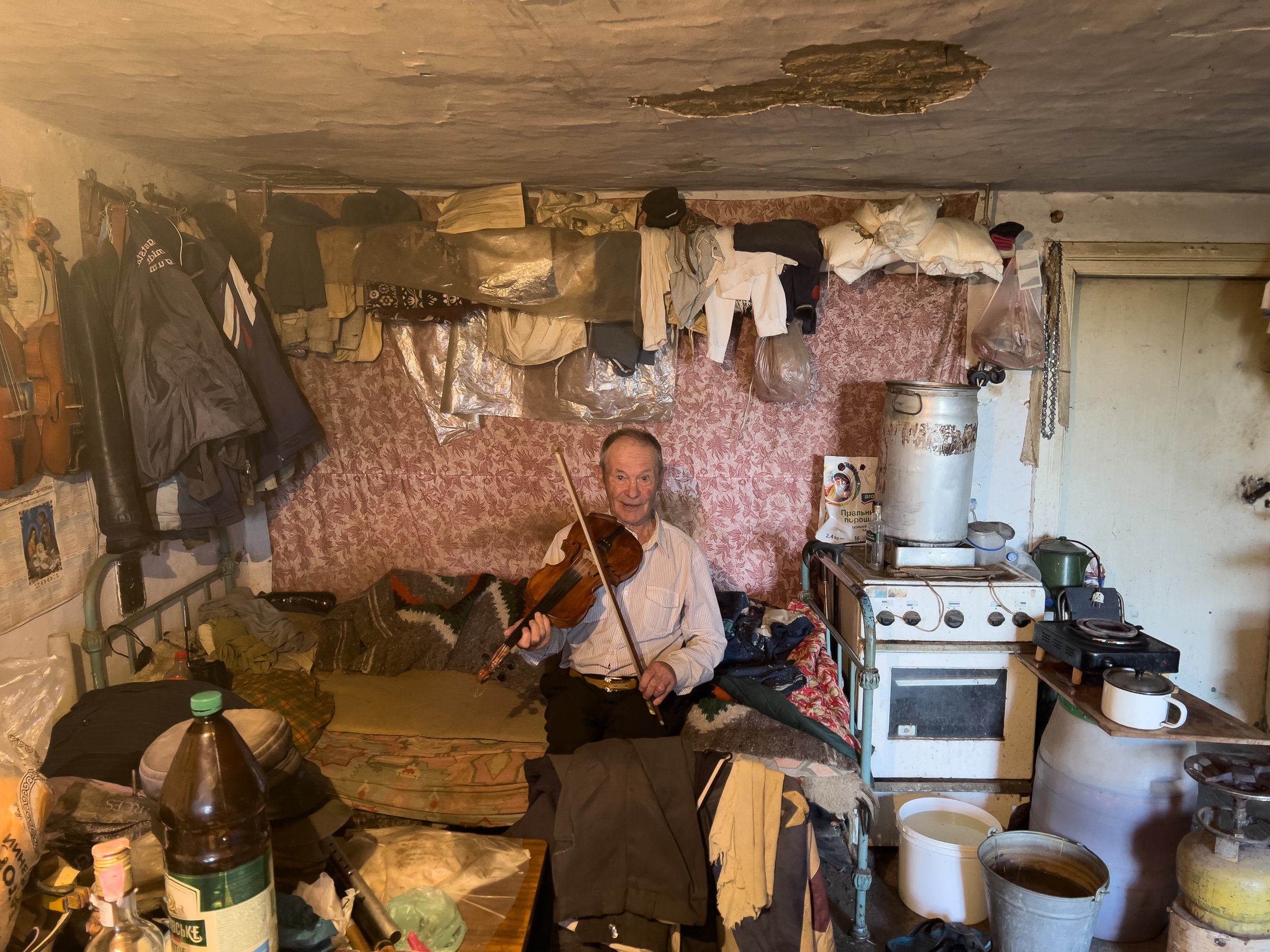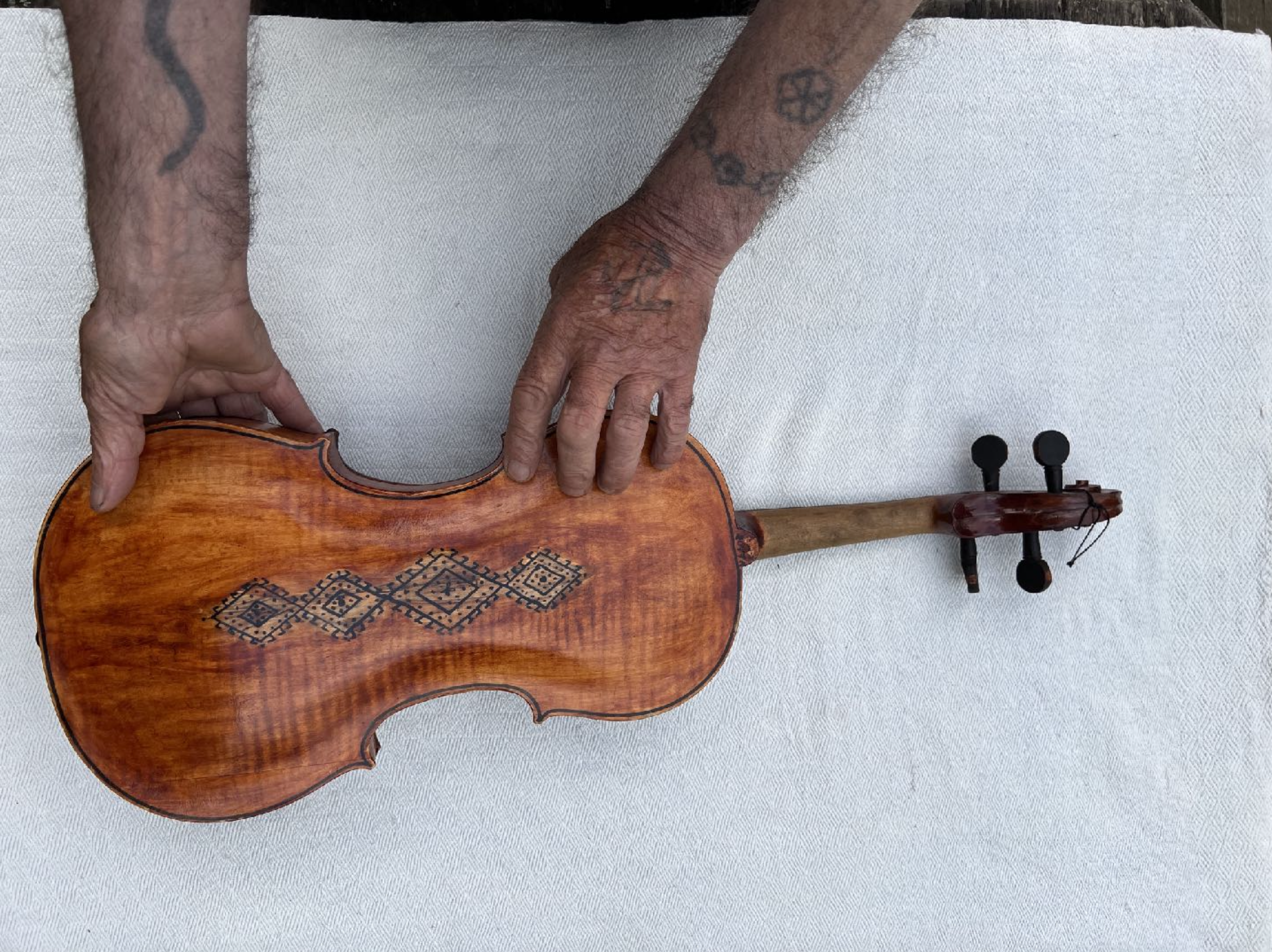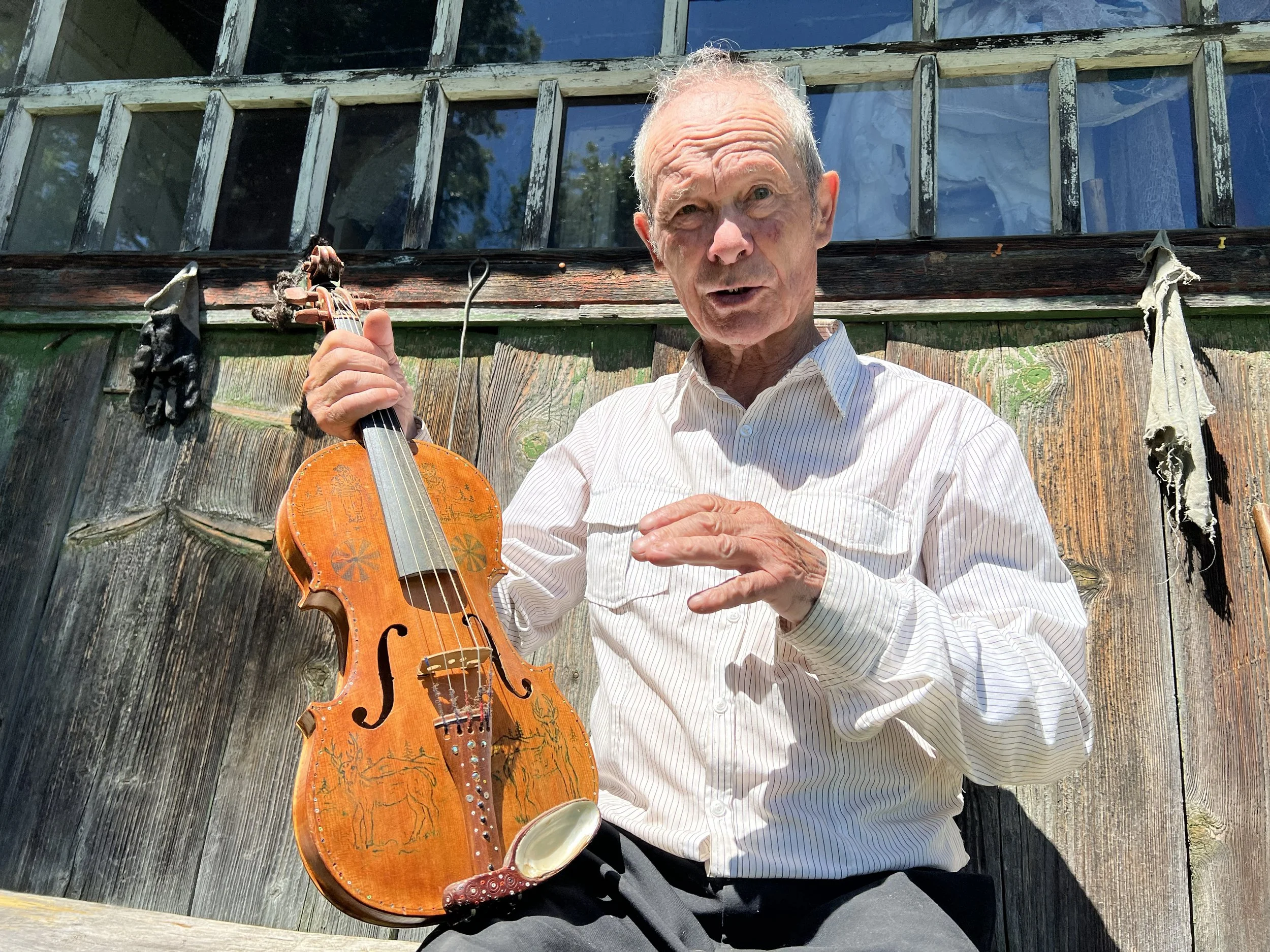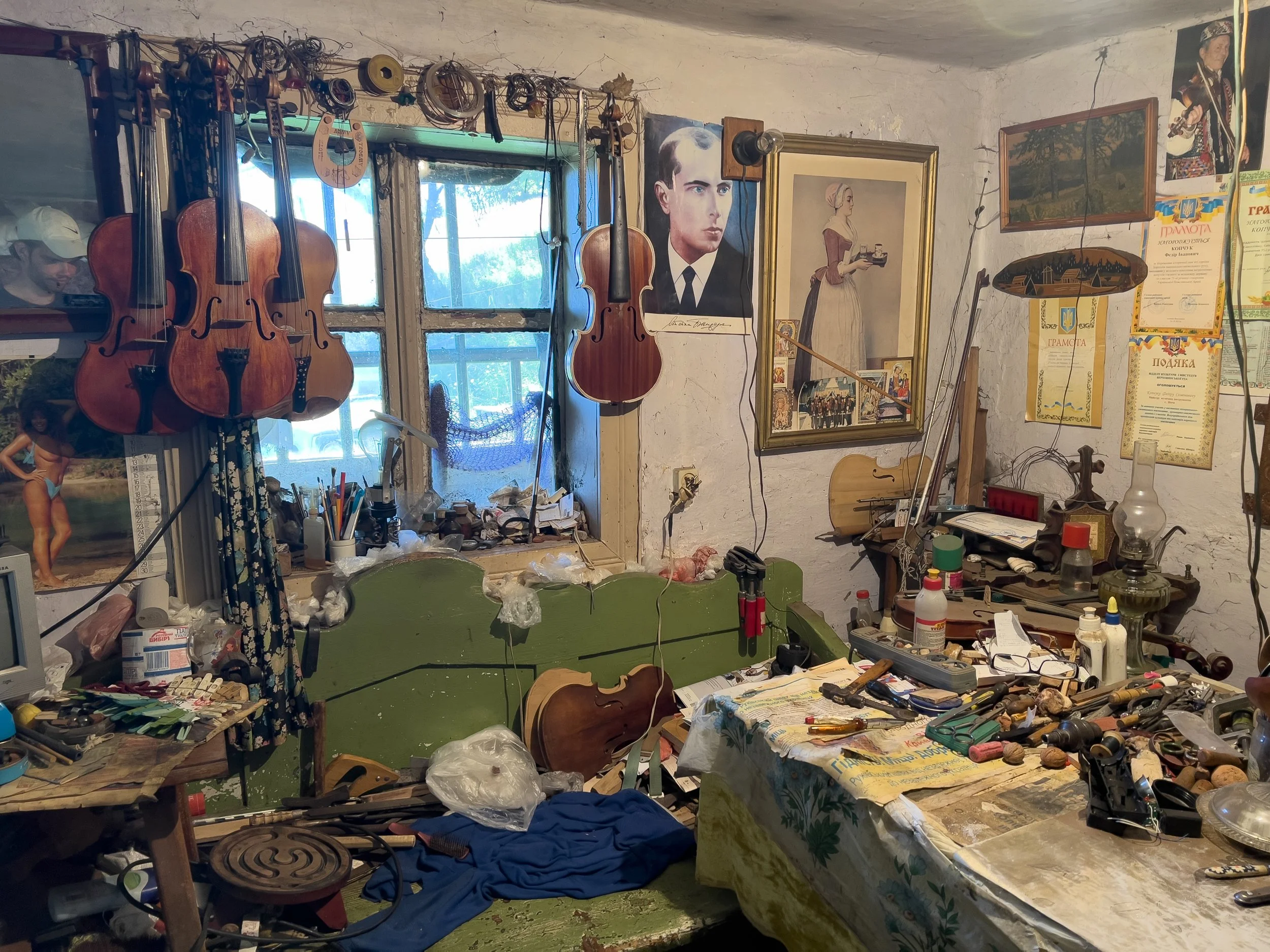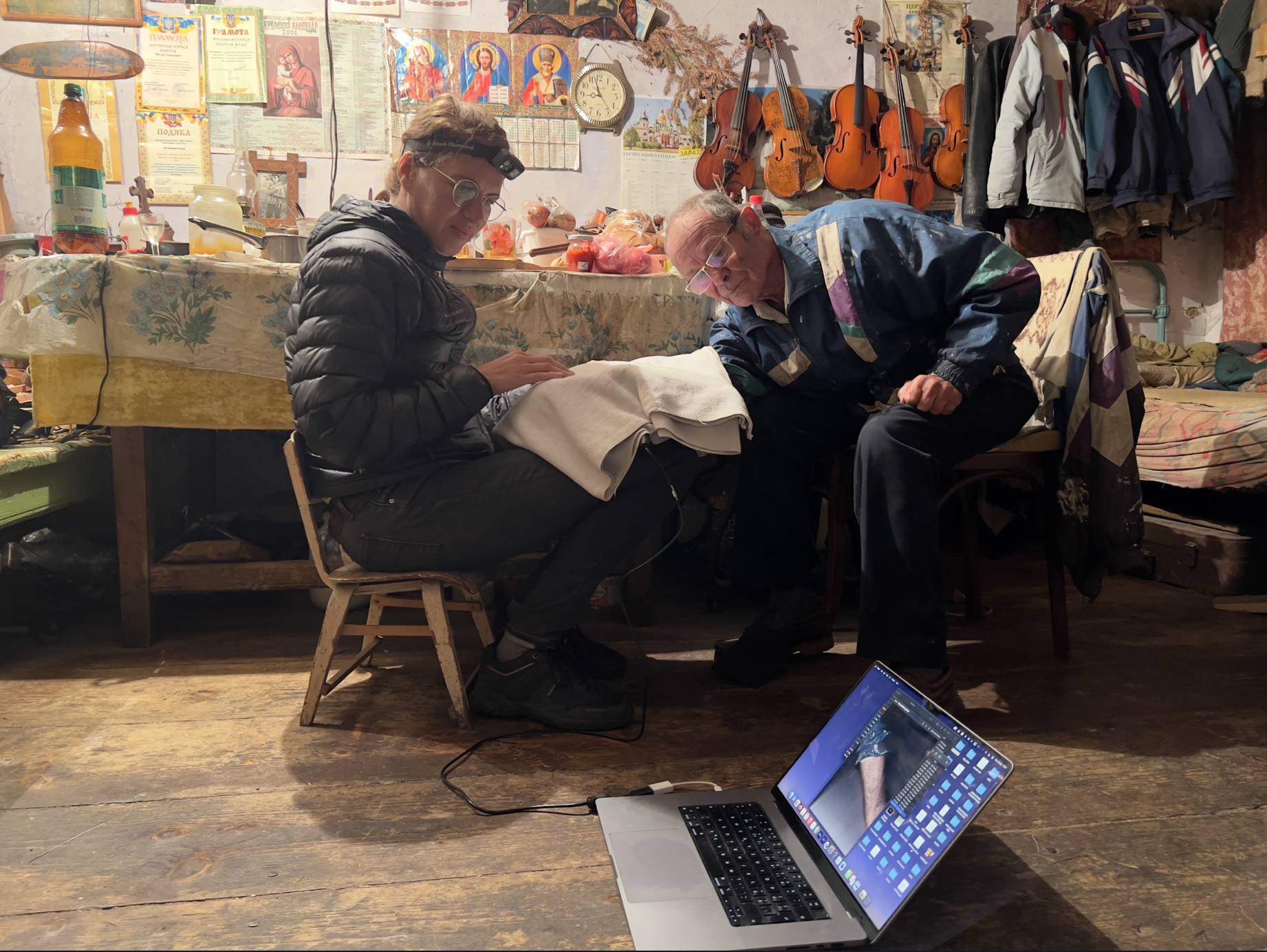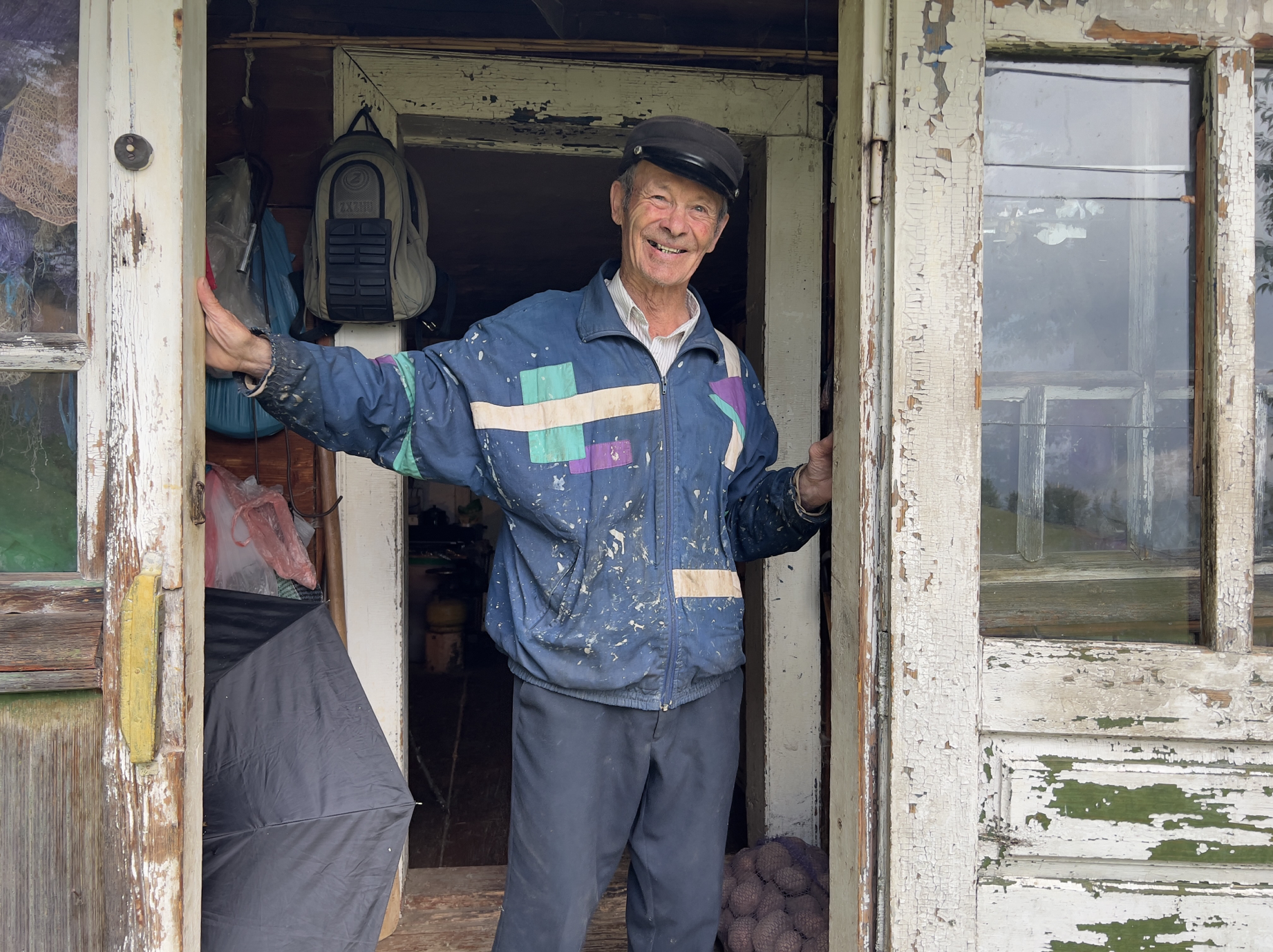Simka: The Story of Seven-string fiddle
Fedir Kopchuk (*1937, Western Ukraine) began crafting musical instruments and playing the fiddle at 28. Despite his lifelong passion for music, he could not afford to buy his own instrument. Moreover, being a left-handed musician was unusual in his area, and when he managed to borrow a fiddle, he wasn't allowed to change the strings or the setting of someone else's instrument.
At the age of 17, his desire led him to sneak into his neighbor's cottage and steal the fiddle that belonged to a deaf old man. He was caught and imprisoned for six months. During his time in prison, he went without food for weeks.
"I just wanted to change the strings and finally try to play naturally: on the left side. Then I planned to return it back."
He later worked as a woodcutter in Russia and Latvia. While traveling, he stumbled upon a group of women working at a Moscow music instrument factory. He asked them if they would help him smuggle materials and separate violin parts from their workplace.
"You hide the front wooden panel under your shirt, you hide the fingerboard and the neck to your trousers... I'll put it all together and play."
Gradually, he started to collect old and often broken instruments from local musicians. He repaired them by taking them apart and trying to understand the construction through trial and error. "I made something, and either it worked, or I burned it in the stove and moved on." The experienced luthiers in the area were not helping him as they feared losing their business.
Therefore, he had to look for an appropriate wood for each part, discover how to bend thin pieces, choose the glue that would support the resonance, and build all the necessary tools on own. His work nowadays still contains unusual methods and inventive recycling.
As we learned during interviews with professional luthiers in the Netherlands or Slovakia, most of his procedures are unacceptable in the traditional craft seeking perfection in classical music instruments. However, after decades, he refined all the do-it-yourself principles towards functionality.
The instruments sounded according to his preferences and fulfilled their role of making people sing and dance at local parties. The opportunity to experiment and create his own rules within the craft led him to develop various inventions that caught our attention during our first meeting.
When Fedir proposed creating a seven-string violin, we understood it might be the last opportunity to realise the concept born from his life-changing experiences. He wanted to design an instrument that would allow him to accompany singers without any limitations on voice pitch and, at the same time, to solve a lifelong problem of having an instrument that can be played by both right and left-handed players.
Thanks to the Konrad Boehmer Foundation, we supported the preparation and production of the instrument. We offered Fedir the opportunity to buy the necessary material according to his wishes and the offer to buy the finished fiddle. His idea was to make one seven-string instrument for us and another for him.
We want to continue.
Now, we need financial support to finish the documentation and post-production of an audiovisual essay, not only telling the instrument's story but also to document Fedir’s original personality.
As a six-month-old child, he was left behind while his mother was taken to a German working camp instead of her husband. He grew up without ever knowing her as she was killed in a factory after two years. From the age of two to the age of eight, Fedir unknowingly served as a partisan during the Second World War by delivering notes, a secret messages between people. He was officially recognized for helping UPA (Ukrainian Insurgent Army) by the state after Ukraine became an independent country.
Fedir is an example of a life fully lived for his own dreams in very tough times. His struggle for freedom at the borderlines of the East and West is a never-ending narrative of being born at the wrong place and time, but at the same time, getting the most out of it.
As Fedir would say: "We poor are living happy lives, as there is nothing else left for us."
We would like to use his instrument for life performances, where the material we collected at the same region could get a chance to be shared in many different contexts, and we can experiment with the vision of how it could sound the best from many perspectives. We are lucky to have a chance to work with a person, who spent his whole life trying to realize and create specific sound for his region.
We believe that the documentation of one original vision could be a great inspiration for future researchers, historians, musicians, and artists.
Fedir has around 20 instruments in his house. All of them are more or less his own creations with artistic innovations.
We believe it’s crucial to buy his collection to serve artists, researchers, and musicians before it gets stolen or lost between the people who do not share same passion. According to Fedir, no one has shown interest in his inheritance before.
We would love to organise different types of workshops, where participants can learn more about these instruments and facts, that often you have to be creative to fight for specific sounds you desire to be remembered.
Do you want to help? Contact us!
